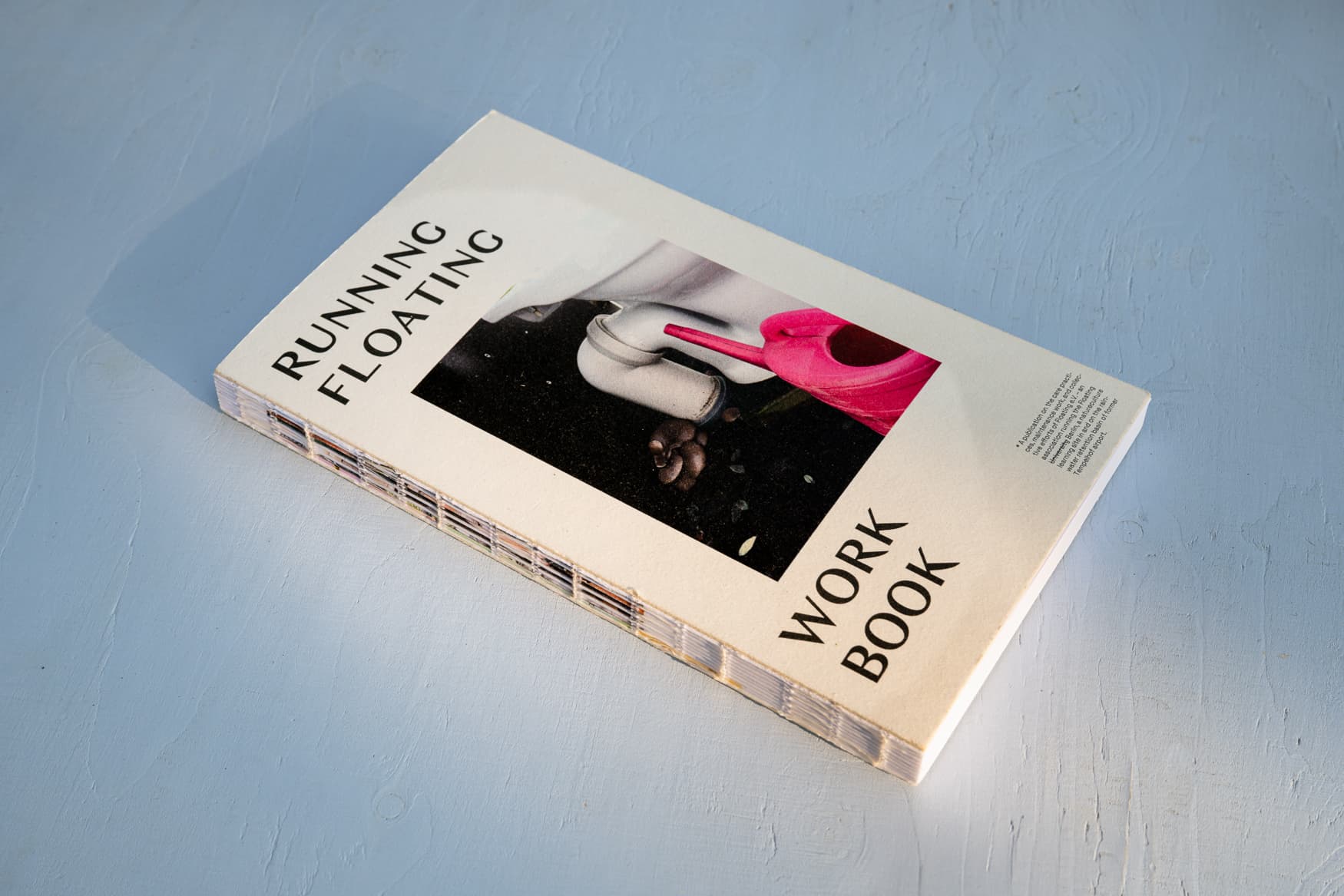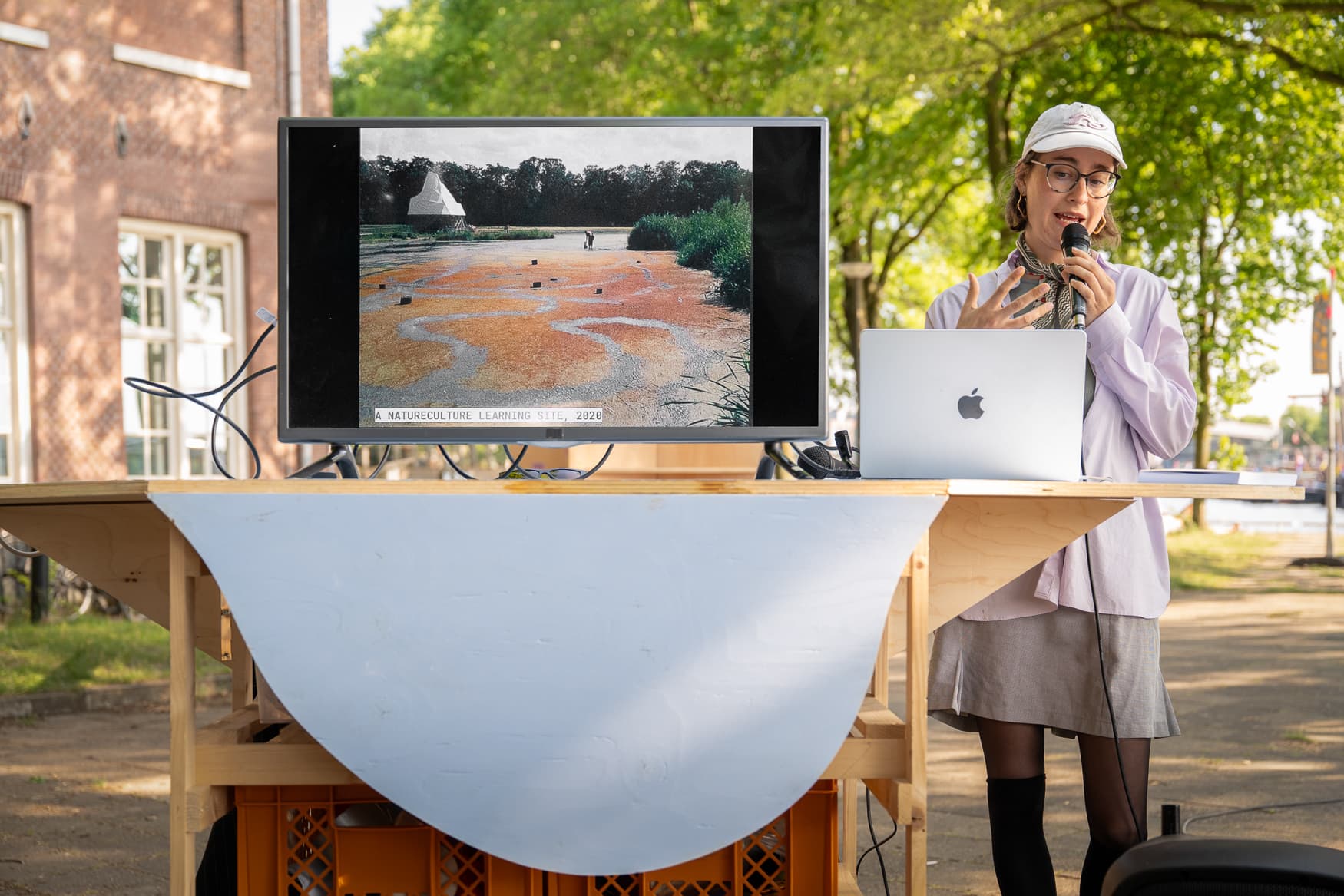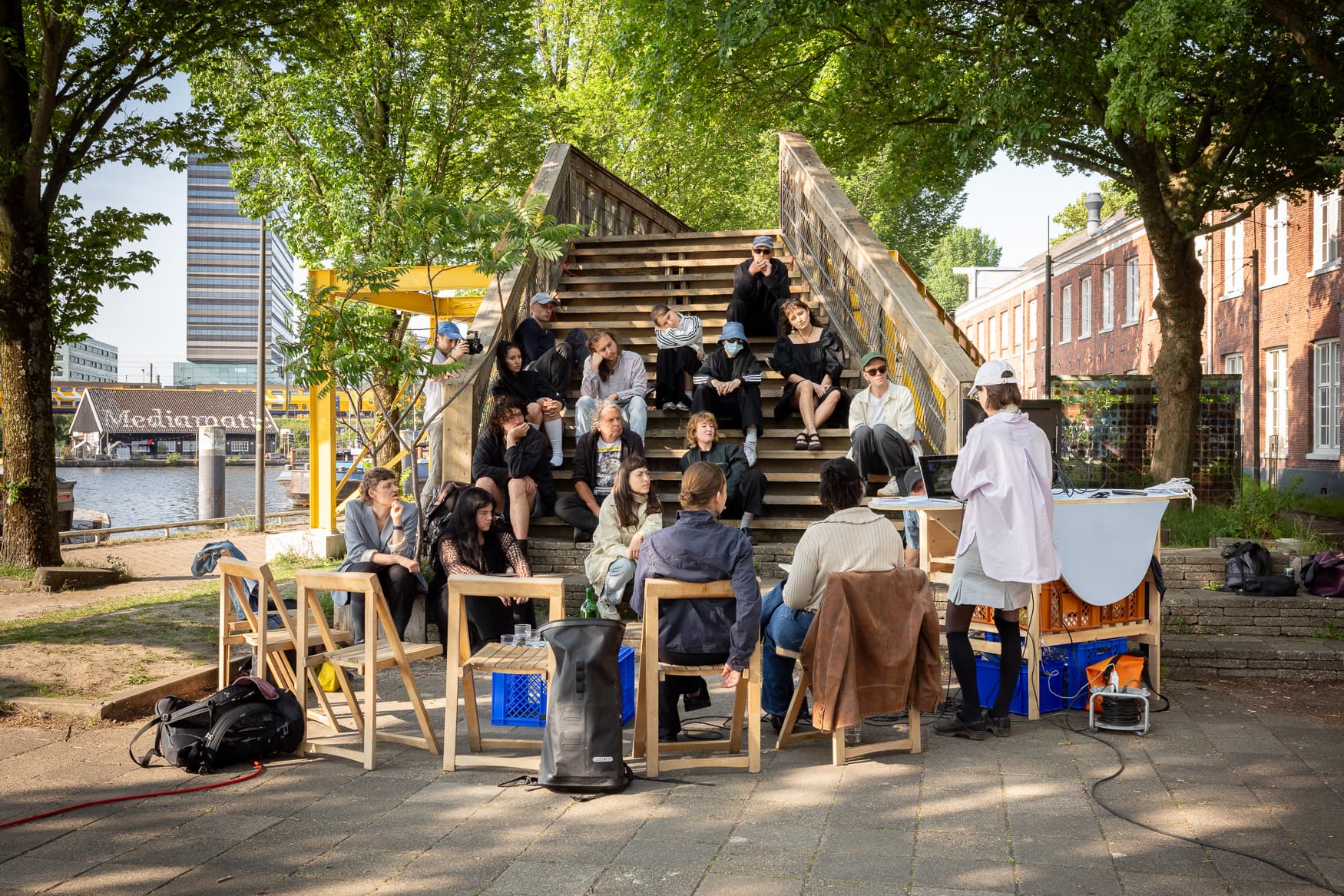Hannah Lu Verse
Studio for Immediate Spaces
Biography
I am a producer, photographer and spatial practitioner based in Berlin. Working in different contexts and roles, I focus on care and collective practices, self-organized spaces and social justice, unionizing and labour organizing – always from a feminist perspective and leading to the question of who cleans the dishes.



Practices of Care: Archiving
"Practices of Care: Archiving" is the fourth chapter in a series that explores care as a spatial, social, and institutional practice. This research focuses not on singular objects or outputs, but on the conditions and contexts in which work happens—especially how care, often invisible or undervalued, connects with authorship and infrastructure. The project unfolds through practice-based interventions examining care across different stages: assembling, maintaining, editing, and now archiving. It investigates how resources—material, emotional, administrative—are redistributed between institutional and non-institutional settings, and how collective practices create alternative modes of production. The first part, "Practices of Care: Assembling", explored collective infrastructure through shared labor, and self-organization by collective building process. The second, "Maintaining", was realized in the exhibition “Not to Exhibit but to…” in collaboration with DeKaskantine. Together we repaired and reactivated a mobile kitchen—framing maintenance itself as a form of cultural production. The third, "Practices of Care: Editing", took the form of writing a publication grant as a thesis (titled "Maintenance Writing"), focusing on the administrative and often invisible processes that shape creative work. This final part, "Archiving", centers on the Floating University Berlin, a self-organized natureculture learning site located in and on a rainwater retention basin at Tempelhof Airport in Berlin. Since 2019, the Floating Association has maintained this hybrid infrastructure for experimental pedagogy, cultural programs and ecological engagement—without stable funding or long-term institutional support. Instead of producing a graduation work centered on individual authorship or focused on aesthetic output, I chose to "double-use" my academic resources (through governmental financial support and given time) to contribute infrastructural labor to Floating University while simultaneously documenting and archiving this process. Furthermore, I archived the (care and community) work of the Association from 2019 until 2024, resulting in a publication that brings together photos, meeting minutes, working documents, and reflections to narrate those five years of collective effort and care. Here the context becomes content: The focus is not on producing new work, but on making visible the structures and conditions under which (culture) work is done: unpaid labor, emotional investment, shared decision-making, and the efforts of self-organization. The publication not only documents these aspects but treats the act of “archiving” as a form of care in itself. This approach also brings up questions: In a collective context, when does shared work (if ever) become individual practice? How is authorship distributed or claimed within collectives? What happens when we foreground processes instead of products — maintenance instead of display (referring also the part of the course description “not to exhibit but to exist”)? I aim to synthesize central themes from my time at the "Studio for Immediate Spaces": the politics of care, the value of maintenance (including administrative) work in spatial practice, and the relationship between institutional and non-institutional work environments. So "Practices of Care: Archiving" operates on different levels: As a publication that foregrounds collective and care-based work within a non-institutional project. As a direct contribution to a self-organized, precariously funded project, and as a critical reflection on the entanglement of artistic labor, infrastructure, and authorship. In this sense, care is not (only) the subject of the work—it is also the method, the framework, and the politics.
